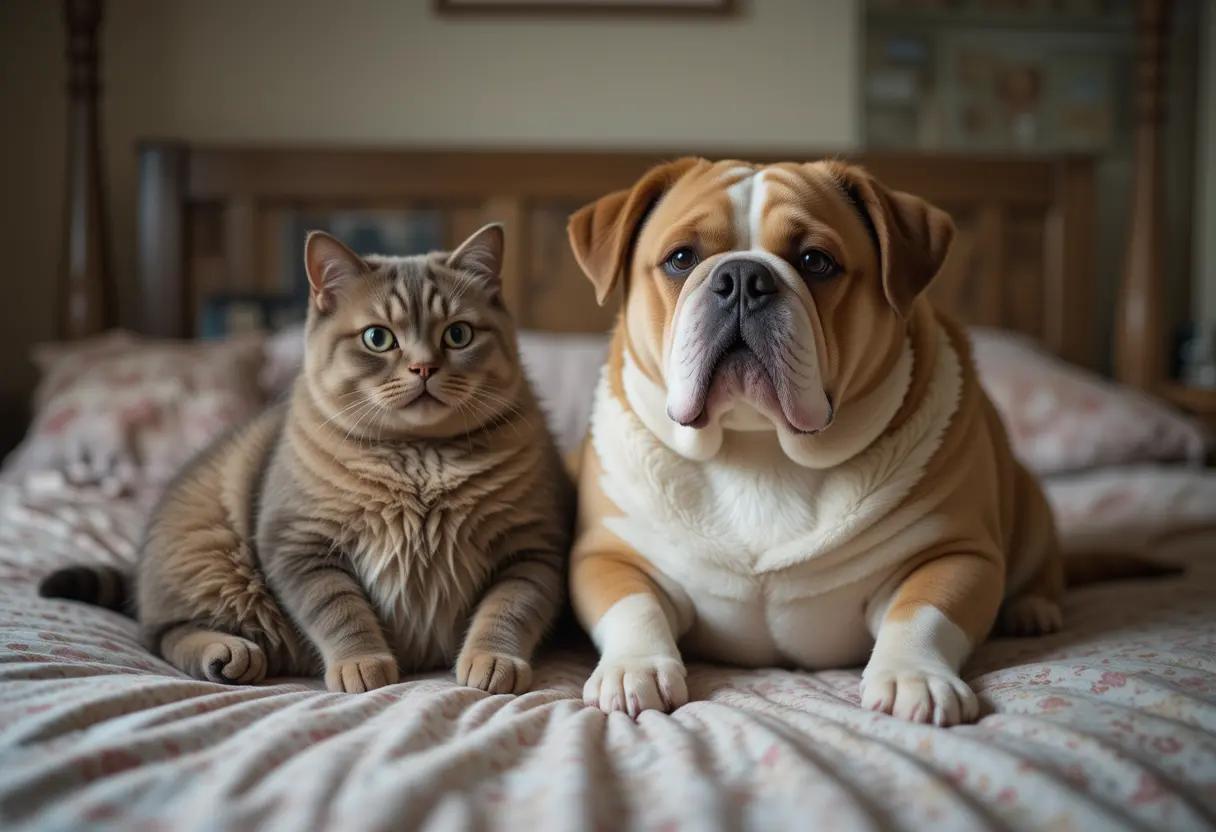Obesity in pets is more than just a cosmetic issue—it can lead to a host of health problems, such as diabetes, joint pain, heart disease, and a shortened lifespan. Just like in humans, the health consequences of obesity can significantly impact a pet’s quality of life, leading to discomfort and a decrease in overall happiness. Preventing pet obesity naturally is not just about limiting food—it’s about creating a balanced, active lifestyle with the right diet, exercise, and habits that promote health.
In this comprehensive guide, we’ll explore how you can prevent pet obesity naturally by providing practical, easy-to-implement tips to help your pet maintain a healthy weight.
Table of Contents
What Is Obesity in Pets?
Obesity in pets is a condition where excess body fat accumulates to the point where it negatively affects their health. It is usually measured using the body condition score (BCS), where pets scoring 6 or 7 out of 9 are classified as obese. A pet is considered obese when they carry 20% or more above their ideal body weight. Obesity can lead to serious health problems such as arthritis, heart disease, diabetes, and reduced mobility, and it significantly shortens their lifespan.
Much like humans, obesity in pets is caused by an imbalance between the calories consumed and the calories burned. While some pets may be more prone to weight gain due to genetics, environment, or medical conditions, the good news is that obesity is largely preventable and manageable through proactive lifestyle changes.
How to Identify Obesity in Your Pet
Before you can prevent or address obesity, you must first know how to identify it. Here are some signs your pet may be obese:
1. Body Shape
One of the easiest ways to tell if your pet is obese is to look at their body shape. Healthy pets have a visible waistline when viewed from above, and their abdomen should have a slight tuck when seen from the side. If your pet’s body is round and lacks a clear waistline or if they have a large sagging belly, they may be overweight or obese.
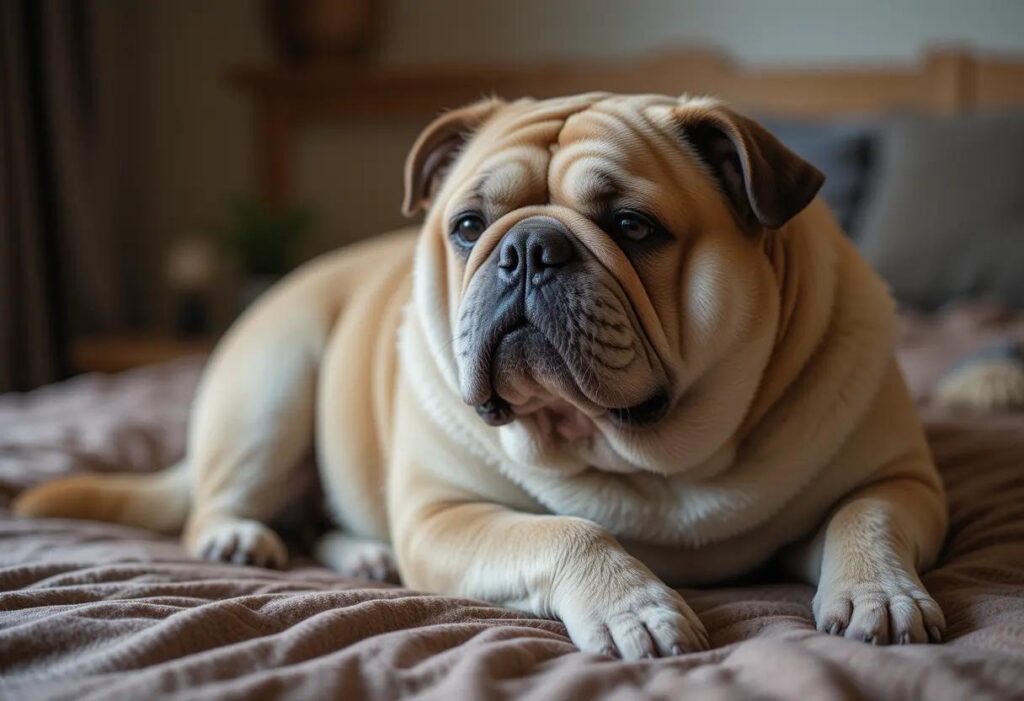
2. Ribs
In healthy pets, you should be able to feel their ribs with a light touch. If you cannot feel their ribs without pressing harder or if the ribs are covered by a thick layer of fat, this is another sign that your pet may be obese.
3. Activity Level
Obesity often leads to lethargy. Pets with excess weight may avoid physical activities, have difficulty keeping up on walks, or become easily fatigued. If your active dog suddenly stops running or your cat avoids climbing, this might indicate obesity-related health issues.
4. Breath and Health Problems
Overweight pets may have trouble breathing, especially after physical activity. They might pant excessively and seem more tired than usual. Obesity can also lead to more serious health conditions such as heart disease, diabetes, and arthritis.
By being proactive in identifying the signs of obesity, you can address it early and improve your pet’s health before more severe complications arise.
What Causes Obesity in Pets?
Obesity in pets is rarely caused by just one thing. Instead, it results from several factors coming together. Here are the most common causes of obesity in pets:
1. Overfeeding and Poor Diet Choices
Feeding your pet too much food is one of the primary causes of obesity. Many pet owners don’t realize they’re overfeeding because they follow the suggested portion sizes on the pet food packaging, which often provide higher-than-needed amounts. Moreover, feeding your pet treats or table scraps can add extra calories without you realizing it.
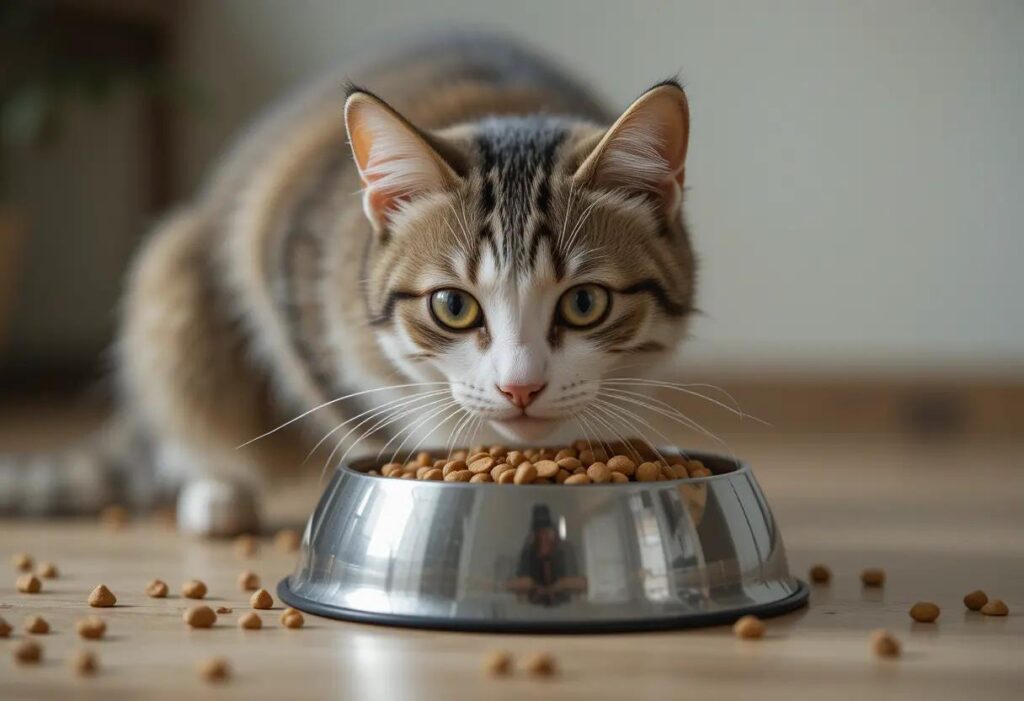
Additionally, not all pet foods are equal. Some foods contain unnecessary fillers, sugars, and unhealthy fats that contribute to weight gain. Opting for high-quality pet food and choosing the right food for your pet’s age, size, and health can help prevent obesity.
2. Lack of Exercise
Pets, especially indoor cats and dogs, are prone to obesity if they do not get enough exercise. Physical activity is essential for burning off the calories your pet consumes. Pets who are sedentary for long periods are more likely to gain weight. Dogs need regular walks, runs, and playtime, while cats benefit from interactive toys and engaging activities.
3. Genetics and Breed
Some breeds are more prone to obesity than others. For example, Labrador Retrievers, Dachshunds, and Cocker Spaniels are genetically predisposed to gain weight more easily. Additionally, older pets may gain weight more quickly due to a slower metabolism and reduced activity levels.
4. Medical Conditions
Certain health issues, such as hypothyroidism or Cushing’s disease, can cause weight gain in pets. If your pet is suddenly gaining weight or is unusually lethargic, it may be due to an underlying health condition. Always consult your veterinarian to rule out medical causes.
How to Prevent Pet Obesity Naturally
Now that we know the causes of obesity, let’s look at some natural and practical ways to prevent it.
1. Feed a Balanced, Nutritional Diet
The foundation of preventing obesity in pets naturally is a healthy, balanced diet. Make sure you’re feeding your pet food that is appropriate for their age, size, and breed. Look for foods with high-quality ingredients, such as lean meats, vegetables, and whole grains. Avoid foods with fillers like corn, soy, and artificial additives. If you’re unsure about which food is best for your pet, consult your veterinarian.
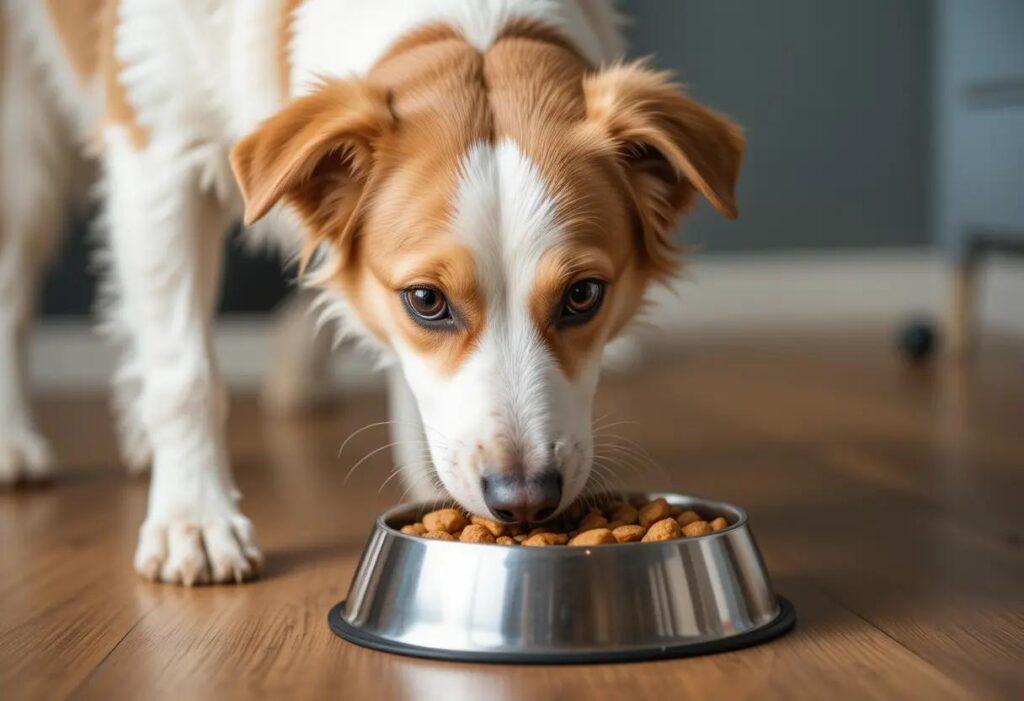
2. Control Portion Sizes
Portion control is one of the simplest ways to prevent pet obesity naturally. Instead of free-feeding, which means leaving food out all day, measure your pet’s food and feed them set portions based on their specific caloric needs. Keep in mind that the feeding recommendations on pet food labels may not be appropriate for your individual pet. It’s always a good idea to consult your veterinarian for more personalized advice.
3. Limit Treats and Snacks
Treats are often a hidden source of extra calories. While it’s fine to offer occasional treats, they should not make up a large portion of your pet’s daily calorie intake. Aim to give treats in moderation and choose low-calorie options, such as carrots for dogs or catnip for cats. You can also use part of your pet’s regular food as treats instead of giving them extra snacks.
4. Encourage Regular Exercise
Regular exercise is essential for preventing pet obesity naturally. Dogs, especially, need daily walks and active playtime to maintain a healthy weight. Depending on your dog’s breed and energy levels, they may also enjoy activities like running, hiking, or playing fetch. Cats, though more independent, also benefit from regular play. Interactive toys such as laser pointers, feather wands, or puzzle feeders can engage them in physical activity.
Make exercise a fun and consistent part of your pet’s daily routine. Not only does it help prevent obesity, but it also strengthens the bond you share with your pet.
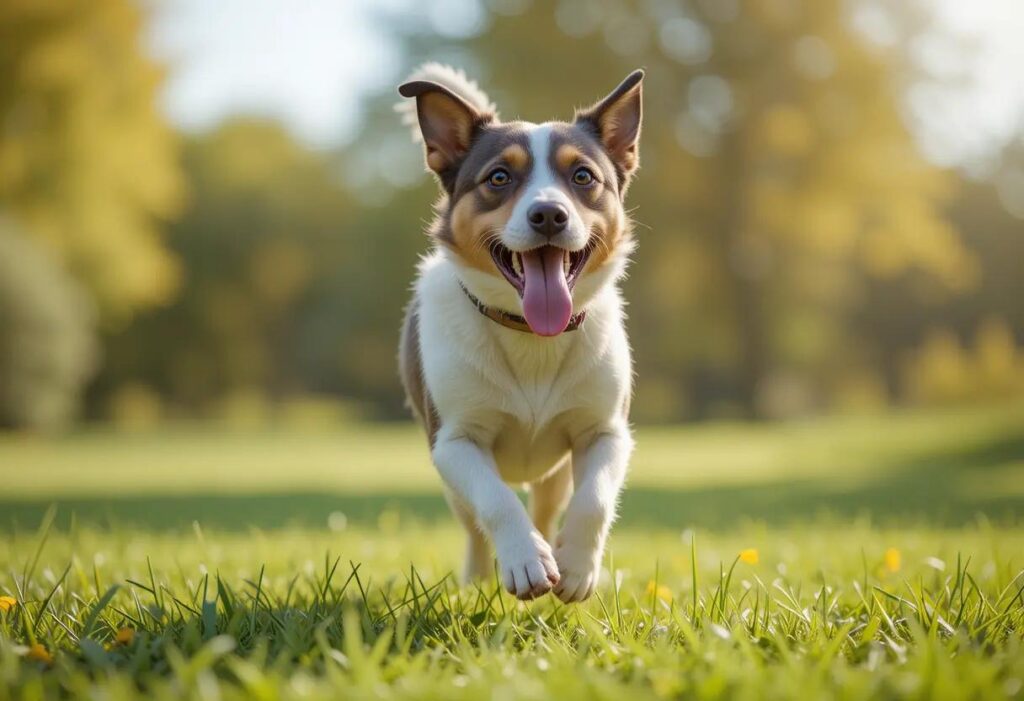
5. Monitor Your Pet’s Weight
Regularly monitoring your pet’s weight is crucial to preventing obesity naturally. Weigh your pet at home or during vet visits to track their progress. Keeping an eye on their body condition score (BCS) will give you a clear indication of whether they are underweight, at a healthy weight, or overweight.
6. Regular Veterinary Checkups
Your veterinarian plays a crucial role in preventing pet obesity. Regular vet checkups will help catch any early signs of weight gain or obesity-related health issues. They can recommend diet plans, exercise routines, and lifestyle changes that are best suited to your pet’s individual needs.
7. Be Consistent and Patient
Prevention requires consistency. You need to be patient with your pet’s diet and exercise routine. Changes don’t happen overnight, but with time and effort, you’ll see results. Stay committed to your pet’s health and well-being, and you’ll prevent obesity naturally over the long term.
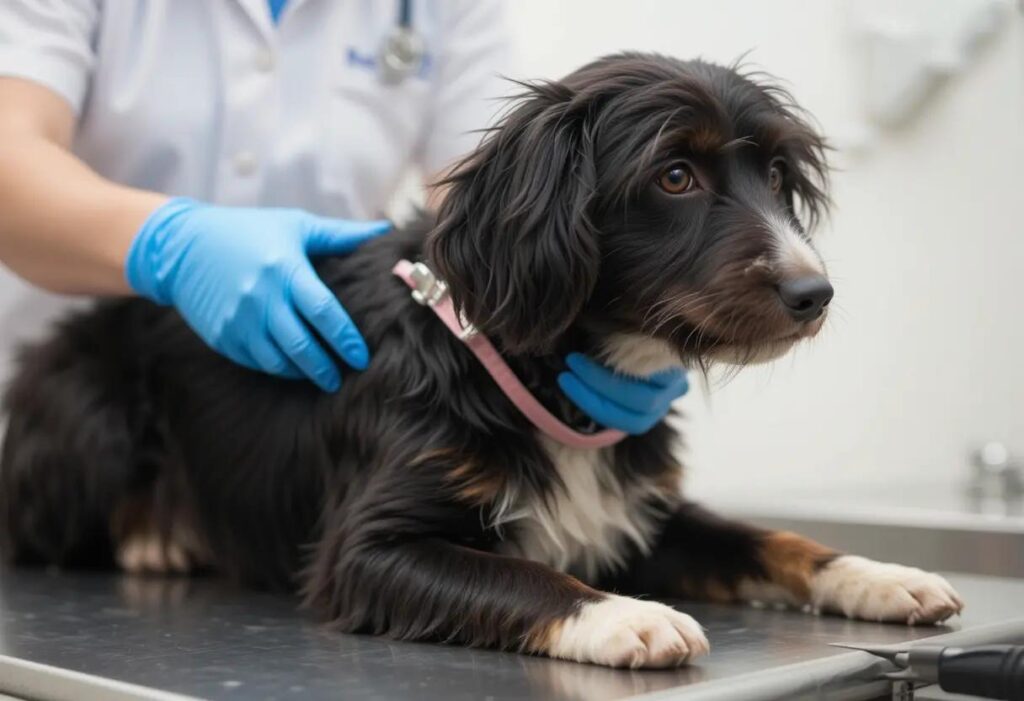
Conclusion
Preventing pet obesity naturally is one of the best things you can do for your pet’s health. By feeding them a balanced diet, controlling portions, encouraging regular exercise, and monitoring their weight, you can help them maintain a healthy weight and avoid the risks associated with obesity. Prevention is always better than treatment, so make healthy habits a part of your pet’s daily routine.
With your commitment, your pet can lead a long, active, and healthy life. Start making small changes today to give your furry friend the best chance at living a happy and healthy life without the burden of obesity.
Ready to Become the Best Dog Parent Ever?
Is Your Dog Ready to Live Their Best Life?
Ready to Become the Best Cat Parent Ever?
FAQs
1. How can I prevent my pet from becoming obese?
To prevent pet obesity naturally, it’s important to maintain a balanced diet, control portions, and encourage regular exercise. By feeding your pet high-quality food with the right nutrients and making sure they stay active, you can reduce the risk of obesity and keep your pet healthy.
2. What are the first steps I should take when learning how to prevent pet obesity naturally?
The first step in how to prevent pet obesity naturally is by ensuring your pet gets a proper diet and regular physical activity. Start by feeding appropriate portion sizes and engaging your pet in daily exercise routines such as walks, playtime, or interactive toys.
3. Can regular exercise help prevent my pet from gaining weight?
Yes! Regular exercise is one of the most effective ways of learning how to prevent pet obesity naturally. Dogs need daily walks or runs, while cats can benefit from interactive playtime. Consistent activity helps burn off excess calories and keeps your pet in good shape.
4. How can I manage my pet’s diet to prevent obesity naturally?
When learning how to prevent pet obesity naturally, managing your pet’s diet is key. Ensure that you’re providing high-quality food suited to your pet’s specific needs. Measure your pet’s food to avoid overfeeding, and limit the number of treats or table scraps they receive.
5. My pet seems to be gaining weight despite eating the same amount. What should I do?
If you’re concerned about your pet’s weight, learning how to prevent pet obesity naturally includes tracking changes in their activity level and health. A reduction in physical activity could be the reason for weight gain. Adjusting their diet and increasing their exercise can help manage their weight effectively.
6. How can I tell if my pet is obese or just overweight?
To understand how to prevent pet obesity naturally, it’s essential to know the difference between overweight and obese. Obesity is typically diagnosed when your pet’s weight exceeds 20% of their ideal body weight. If you can’t feel their ribs easily or they have a sagging belly, it might be time to consult your vet for advice.
7. Can I prevent my pet from gaining weight as they get older?
Yes, it’s possible to prevent pet obesity naturally as they age. Older pets are more prone to weight gain due to a slowing metabolism. To combat this, adjust their diet to include lower-calorie food and keep them active with shorter, gentler exercises that still promote weight control.
8. What type of food should I feed my pet to prevent obesity naturally?
Feeding your pet the right type of food is essential when learning how to prevent pet obesity naturally. Choose a balanced, high-quality food that fits your pet’s specific needs based on their age, size, and health. Avoid fillers like corn or soy, and opt for meals with lean meats, vegetables, and whole grains.
9. Are there certain breeds more prone to obesity, and how can I prevent this?
Certain breeds are more susceptible to obesity, such as Labradors and Dachshunds. Learning how to prevent pet obesity naturally involves being extra diligent with their diet and exercise routines. Regular check-ups with the vet and consistent physical activity are vital to prevent weight gain in these breeds.
10. How often should I exercise my pet to prevent obesity naturally?
The frequency and type of exercise depend on your pet’s age, breed, and health. For dogs, at least 30 minutes to an hour of exercise daily can help prevent obesity naturally. Cats also need daily play sessions to keep active. Regular physical activity combined with a balanced diet is the key to preventing obesity.

